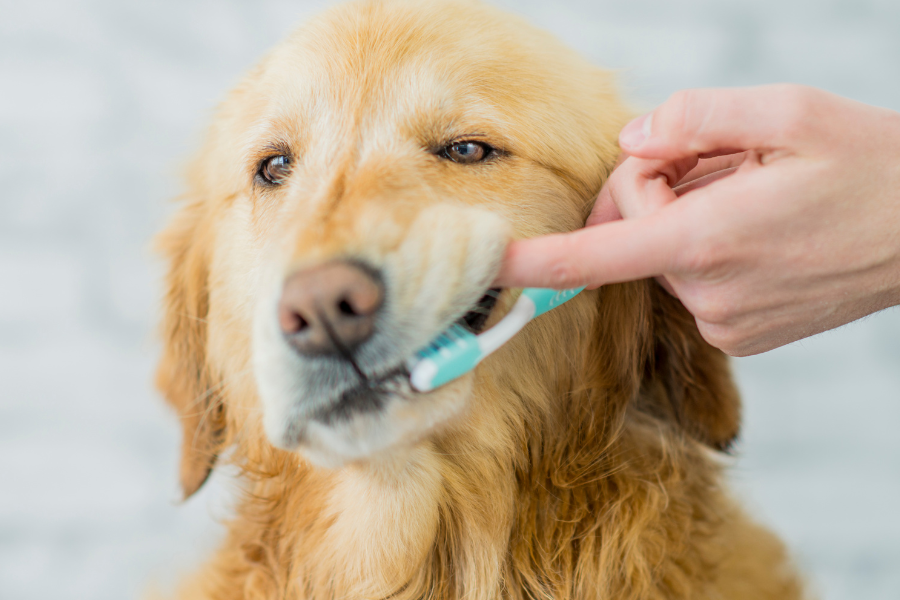July 27 2024.
The ASPCA received calls about pets being exposed to more than 350,000 toxins in 2023.
Here's how to keep yours safe.
Most pet owners can relate to the dreaded moment their pet swallows the forbidden object in their mouth. Whether rummaging through trash bins for snacks or chewing up a bottle of pills they nabbed from the counter, pets are not always the best health advocates for themselves.
Of course, not all pet poisoning cases stem from sneaky behavior. Animals can be exposed to toxins in their surrounding environments via lawn and pool chemicals or given dangerous medication and food by well-meaning but uninformed owners. Additionally, pest control substances, often designed to attract live creatures, sometimes appeal to pets through the addition of sweet ingredients, such as bran and molasses added to the slug bait metaldehyde.
In 2023, over 400,000 beloved pets' ill-advised snacking choices spurred their owners to contact the American Society for the Prevention of Cruelty to Animals' Animal Poison Control Center. To determine how to keep pets safe, eTailPet mapped pets' exposure to toxins in 2023 using ASPCA Animal Poison Control Center data.
Since 1978, APCC has offered 24/7 emergency veterinary helpline assistance to pet owners concerned about potential poisoning, providing advice, guidance, and referrals. For the past decade, the organization, alongside veterinary toxicologists, has compiled its yearly data into a report outlining the top 10 toxins that led to hotline calls and any relevant trends.
Most frequent causes of pet poisoning causes.
Over-the-counter medications remained the #1 cause of pet poisoning for the sixth year in a row since the category overtook human prescription medications in the 2018 report. Over the past decade, human medications have always held the top spot, whether prescription or OTC, according to ASPCA. When combined with prescription medicines, this group constituted nearly a third of all reported pet poisoning cases.
Food and drink-related calls came in at #2 and comprised 16.2% of the cases, up from 15.2% the prior year. The majority of these calls in 2023 were because of garlic and onion, grapes and raisins, xylitol-containing gums, and protein bars and drinks.
Chocolate accounts for 13% of all cases and is most often consumed by dogs, as cats do not have sweet receptors. Dogs drove 95% of all chocolate ingestion cases reported to the Pet Poison Hotline.
Veterinary products, such as calming chews, joint supplements, and flea and tick treatments, are often designed to be as tasty as possible, so it is not necessarily unsurprising when a pet accidentally overindulges. This category takes the #5 spot.
Per the ASPCA report, ingested household products commonly included batteries and the de oxidizer packet found in jerky and other snack packaging.
Recreational drugs take up the #10 spot for the second time since replacing gardening products in 2022. While most recreational drug reports concern marijuana, the growth seen in this category in 2023 was driven by a 74% increase in calls relating to hallucinogenic mushrooms. This massive jump is likely linked to Oregon becoming the first state to legalize adult use of psilocybin, aka magic mushrooms, in January 2023.
How to keep your pet safe.
The best treatment is prevention: Store potentially hazardous foods and objects in locations that are either lockable or out of reach.
For particularly enthusiastic scavengers, consider investing in lockable trash bins and pet-proofing cabinets and doors with locks.
Teaching commands such as "leave it" or "drop it" can also help prevent them from ingesting whatever they may have picked up.
The outcome of poisoning cases depends on timeliness, so do not hesitate to act if you think your pet may have eaten something hazardous. In a potential emergency, stay calm to avoid further stressing the pet and recover any identifying information about the substance in question, such as medication labels and packaging. Have the information handy and contact your local veterinarian or the 24/7 APCC hotline at 888-426-4435. ASPCA also has a guide to identifying unknown medications.
Moreover, never give an animal medication meant for humans unless specifically directed to by a veterinarian. Animal digestive and metabolic systems differ from those of humans and will not respond similarly to the same chemical substances. For example, the FDA notes that cats lack the enzymes needed to break down acetaminophen in the liver, which is why ingesting the pain reliever is fatal for them. A trusted veterinarian is the only person who should make medication decisions for your pet.
Data reporting by Karim Noorani. Story editing by Carren Jao. Copy editing by Kristen Wegrzyn.
This story originally appeared on eTailPet and was produced and distributed in partnership with Stacker Studio.




